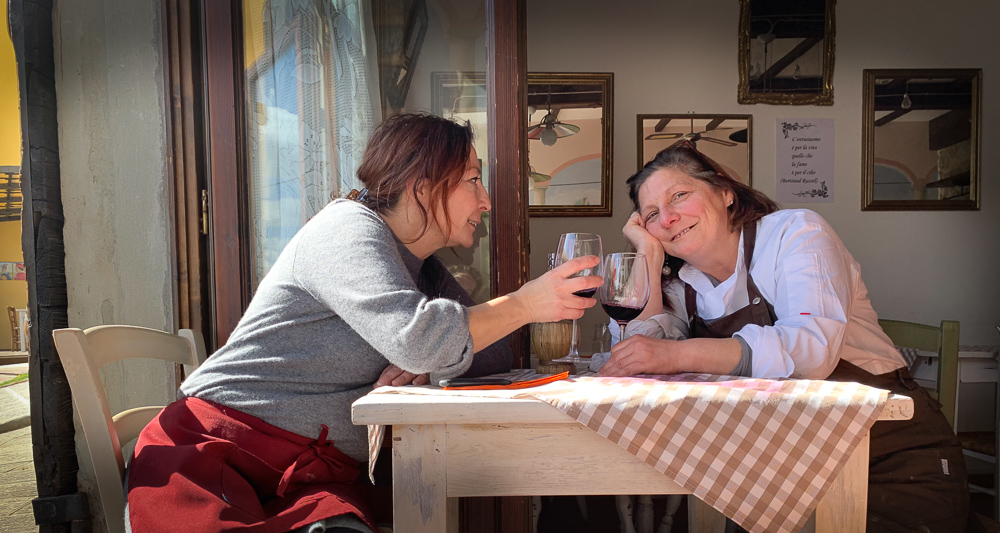
The darker view of Italian life
OK, it’s not perfect. Living in Italy has its dark sides and challenges, as does any other place on earth. I’ve been thinking about this a lot recently as we have some life decisions to make around education.
We live in a village, which offers so many good things that speak to us every day—people are warm, relaxed, funny, and coming from their hearts rather than striving to prove their worth with every encounter. I am sure we are seeing a very special slice of Italy, partly because it is rural. Living in an urban center, like Milan, is probably far closer to what it is like in New York, London, or San Francisco. What we lack in innovation, drive, and ideas doesn’t bother me as these other human elements more than overcome, and I get exposure to the “real world” pretty frequently through work, friends, and travel.
But now Sebastian is in his second year of high school. A school he adores and bounds out of bed every morning at 6:30 to attend. A school where the teachers don’t posture in any way to impose control or superiority. When John or I walk in the halls we are struck by the atmosphere, which is so different from the schools we attended, where the teachers and administrators always seemed frightened that their cloak of control would slip. Here the relationship between students and teachers seems to be almost one of peers. This even extended to a teacher discussing, with the whole class, their extramarital affair as a way of warning the class to be careful about whom they fall in love with. Students are taught to speak their minds and question authority, and they have no problem getting angry with a teacher face to face if there is a perceived injustice. John likes to say that the true accomplishment of the middle and high schools are that they taught our kids to be Italian.
The Italian system forces students to choose a high school with a certain focus—these range from the Liceo choices, which are academic (classics, math and science, linguistics, art) to trade schools for subjects like forestry and hospitality. Sebastian and Donella both chose Liceo Artistico, which we affectionately refer to as Slacker High, so our experience doesn’t speak to the more aggressively academic choices like Classico. But even the most academic of the high schools seem to rely a great deal on memorization and rote learning. The local schools work well for most of the families around here because the kids love the valley and want to stay, and there are few jobs which require university degrees. The trade off of leaving isn’t worth the possibility of greater career possibilities.
In this paradise of Liceo Artistico both hit a wall about two years in. Doing well without ever having to study outside of class and lacking peers who had any interest in going on to university lost its charm. For Donella, the answer was going to a boarding school in England and doing the IB degree, then on to university at UCL. The answer may be the same for Sebastian, but it really bothers me for our family, and for the millions of students in Italy, that this choice needs to be made at all, as well as the disparity issue that we are lucky enough financially, linguistically, and to have this path as a possibility.
I was mulling all this over one day when I went out for lunch by myself to a restaurant run by sisters from Rome, Una Terrazza in Toscana. Cinzia and Daniele (photo above) had only one other customer that day and when he left they joined me for lunch at the table they’d moved to the middle of the front entrance so that it would be best positioned for the sun and we talked for about an hour. They were asking me about what we do for a living, what the kids are doing for school, and whether we think the kids will remain in Italy. And they told me of their great sadness for Italy. That it had felt for while in the 1980s that anything was possible, but now it feels like a country for old people.
It was a theme that was beautifully conveyed in an insightful, poignant, and beautiful documentary, Spettacolo, about a tiny village in Tuscany where most of the population writes and acts in an original play every summer. The documentary followed the development of that year’s play about waiting for the end of the world, which I think a lot of Italians feel. (The concept of locally-written and produced plays, Tovaglia a Quadri, also happens in the village of Anghiari.)
I guess with any of these big, overwhelming subjects the only way to think about it is personally. And for me, the constant challenge is how I can blend the thirst for learning, challenge, and growth while not falling into the traps of competition, insecurity, and anxiety. How to blend the American and the Italian bits of myself. And I still have great hopes for Italy because I believe in the Italians.






No Comments